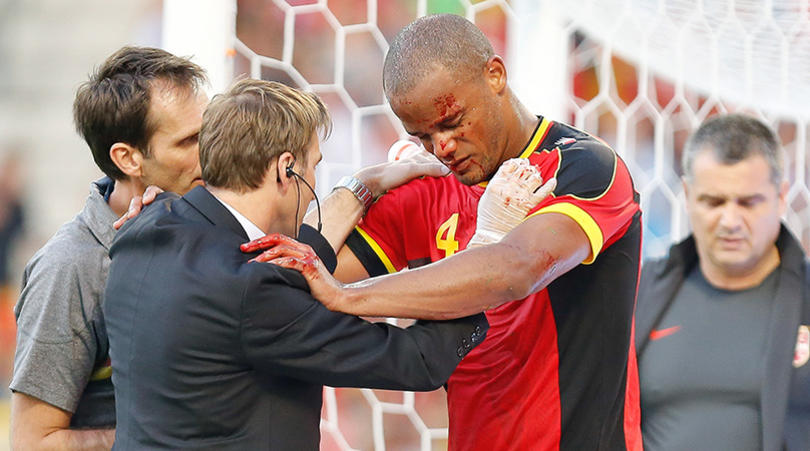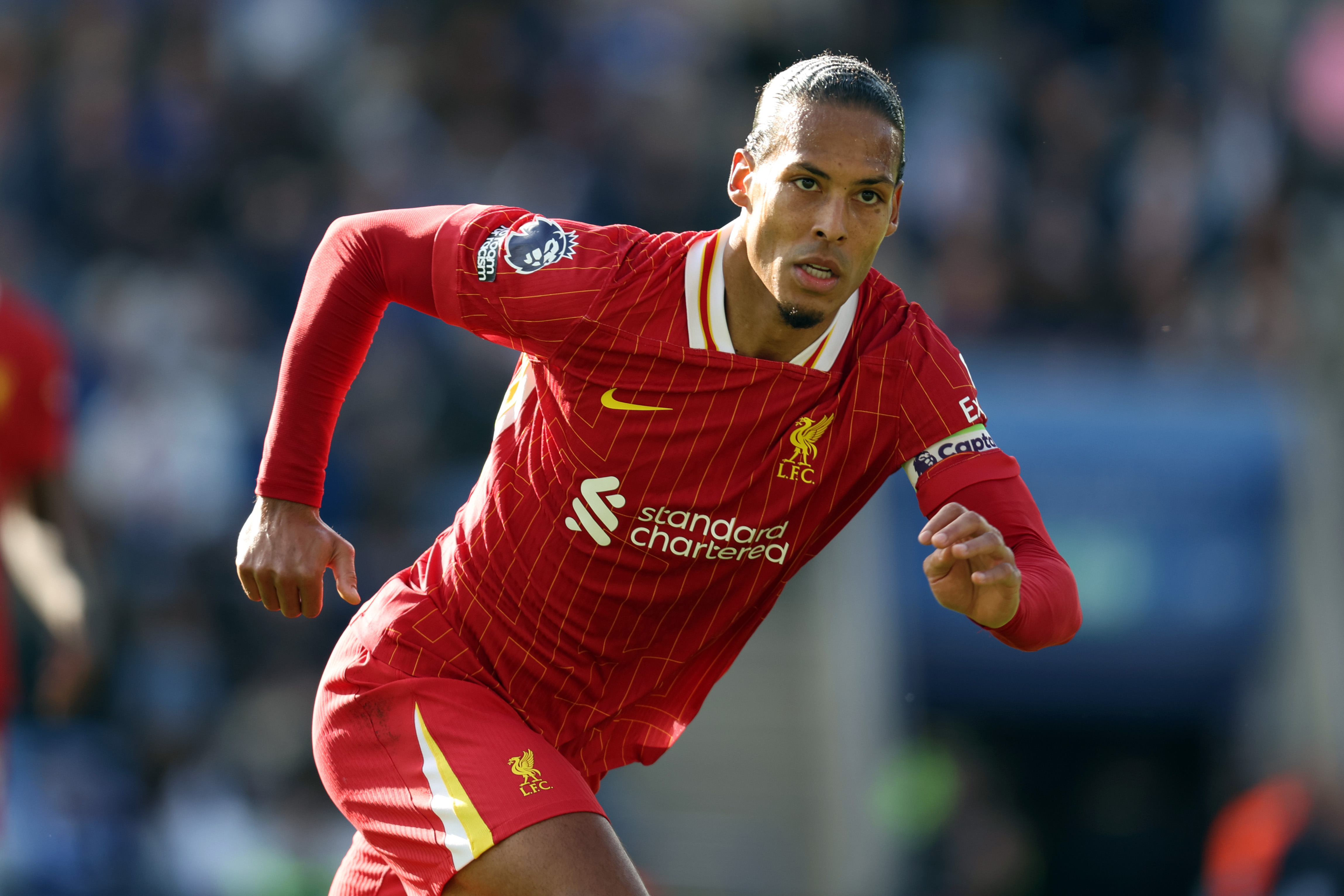In defence of diving: Why punishment for simulation is a blow to the beautiful game
The FA introducing retrospective bans for diving has been widely welcomed - but Johnny Sharp argues that it harms more than it helps, while ignoring the real threat to our sport
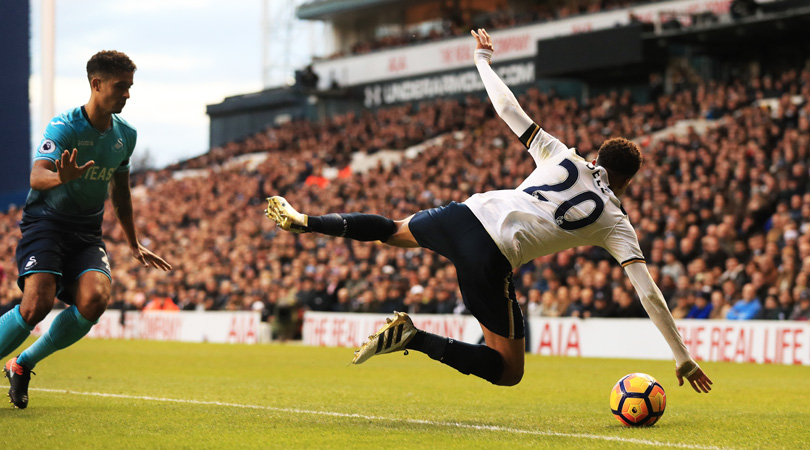
Please note: This is an opinion piece, and does not necessarily represent the views of FourFourTwo. Basically, all abuse to Johnny please.
Lovers of the beautiful game rejoice! Finally the authorities have seen sense! Justice for all decent, honest, upstanding, honest, decent, decent, honest, upstanding football fans! And players! And managers!
I refer, of course, to the FA’s announcement that from next season, diving offences will be punished with a retrospective two-game ban. “The best thing to happen in football since the backpass rule,” said Bob B. on Twitter this week, echoing the received opinions spouted by many millions of other easily outraged keyboard warriors.
Jurgen Klopp, Tony Pulis and others have also expressed approval, while Leicester’s Robert Huth tweeted “Great news, add pretending to be injured and crying when you lose and we are really getting somewhere!” His condemnation of Jamie Vardy’s antics against Tottenham recently presumably got lost in cyberspace.

But at the risk of being condemned as an enemy of common sense, can I make a modest and reasonable defence of the heinous crime that is ‘simulation’ – aka diving, aka CHEATING, dragging the game into the gutter, dancing on the grave of Sir Bobby Moore and sticking two fingers up at the gods of the beautiful game? Dare I?
If refs cracked down on actual foul play half as keenly as they’re being asked to get tough with ‘simulation’, you might find there was less need for players to suddenly lose their footing
I don’t deny that in an ideal world, simulating fouls and deceiving the ref would not take place. And maybe, when all players wear computer chips and robo-refs spot every single rule infringement accurately, there’ll be no need for it. But when ranking sporting crimes, I feel strongly that diving is pretty far down the list compared to what else occurs regularly on a football pitch with barely a whiff of protest or punishment.
It’s the emphasis on the word ‘cheat’ that sticks in my craw like Marouane Fellaini’s elbow. It’s routinely used to condemn players who make the most of being fouled, but rarely, if ever, used about the many hundreds of players across all levels of football whose game is built around pushing, pulling, kicking, nudging, tripping, clattering, clobbering, thumping and, given the chance, half-crippling more skilful opponents.
Get FourFourTwo Newsletter
The best features, fun and footballing quizzes, straight to your inbox every week.
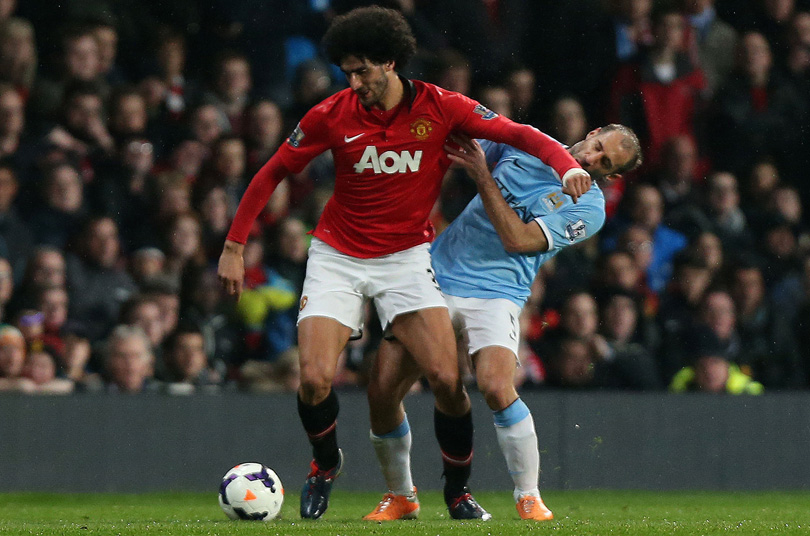
When it comes to the most fouled players, the Premier League list (topped this season by Wilfried Zaha and Eden Hazard) is almost entirely populated by tricky forwards, silky wingers and playmaking midfielders. These are the very players who are the biggest box office attractions in the game, the ones who do the most to create and finish chances, the ones whose absence would make football an infinitely less engaging spectacle.
How often are world-class talents such as Ronaldo or Messi kicked in each game by 'good, honest professionals'?
Are their protests at said fouls ever backed up by supportive howls of indignation from the fans, pundits or managers? Not outside their home stadia they aren’t.
How often are world-class talents such as Cristiano Ronaldo or Lionel Messi kicked in each game by 'good, honest professionals' (Martin Keown)? I know, I know, they’re crying all the way to the bank, no doubt.
Yet when such stellar talents leap out of the way to avoid an obliterated metatarsal or shattered pelvis, and fall to the ground once more with feeling so the ref might just take notice, I think they’re within their rights to appeal for a pen. And after seeing so many such batterings go unpunished, can you blame them for taking advantage of the odd innocuous challenge by claiming it’s something more? They’re only redressing the balance, surely? And it's still scant consolation for being hoofed, elbowed, stud-sliced and toe-squashed 53 times every 90 minutes.
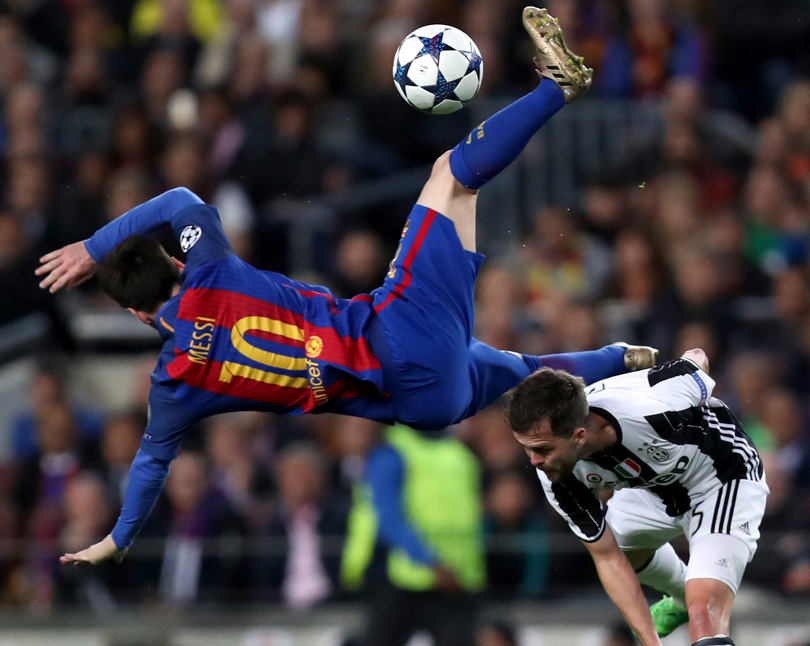
Fans, players and pundits alike have got their priorities seriously back-to-front on this issue.
For every YouTube compilation of players diving there are precisely... well, zero compilations of defenders’ sly digs, secret stud-rakes, casual stamps, elbow digs and passing bone-scrapers. That’s not solely because it’s way harder to catch on camera.
It’s also because it’s invariably the work of those universally admired defenders who would sneer at their victims’ complaints as the kind of cry-baby ‘play-acting’ they most abhor. But how are these transgressions of the rules – which are infinitely more likely to end a player’s career or contribute to their physical decline – so much less serious than trying to take advantage of a defending side’s malicious intent by drawing a foul?
And since the FA are now making such a major statement about ‘simulation’, there’s another issue they might want to consider - cracking down on fouls that don’t result in a player falling to the floor. Because players collapse when they get a kick for good reason: if they didn’t, no one would notice any foul had been committed.
How often have you seen a penalty given for a (non-handball) foul when the player has stayed on his feet? Barely ever. And are you telling me that there aren’t a considerable number of unseen contacts that should technically warrant a penalty under the letter of the law?
In an ideal world, simulating fouls and deceiving the ref would not take place
But a referee would never dare give them, as everyone watching would insist nothing serious had gone on and demonise them as a whistle-happy jobsworth who shouldn’t be allowed near a professional football pitch. Yet if refs cracked down on actual foul play half as keenly as they’re being asked to get tough with ‘simulation’, you might find there was less need for players to suddenly lose their footing in order to highlight an offence.
I’m not saying all dives are justified. But few happen in a vacuum. You may remember Joey Barton’s blatant attempt to get a Lincoln player sent off in the FA Cup a few months back, an offence curiously ignored by his manager Sean Dyche, who had previously been vocal in calling for diving bans. But even Barton would doubtless claim that Lincoln’s players had spent much of the match trying to wind him up (well, it’s Joey Barton: you would, wouldn’t you?), kick him, and generally get him to react so the referee would issue a card or two.
If you were in Barton’s position, having suffered what you considered numerous unpunished wrongs against a lower-division side employing physical tactics, wouldn’t you feel justified in using underhand methods to even the score?
The increasing focus on simulation at the expense of real foul play also has a negative effect in other ways. It’s pretty much routine for players to miss games now as a result of a ‘knock’ from a previous game. Do you think that came from one of their own players, or clattering into an advertising hoarding? No, it was just a routine foul from the opposition, which may well have gone unnoticed because they didn’t make a big deal of it, and resisted the temptation to exaggerate their pain or go to ground.
Diving issue is a stick that is routinely used to beat our game by those who have never loved it and never will
Meanwhile, we bemoan creative, attacking foul-magnets ‘losing a yard of pace’ as they get older, or their youthful promise fading after a string of injuries. Does this result from too much leaping to the ground under minimal contact? Or is it more like death by a thousand cuts, bruises, stitches and oft-ignored assaults?
The diving issue is also a stick that is routinely used to beat our game by those who have never loved it and never will, and we seem only too happy to bend over and take six of the best from footyphobes everywhere.
Whenever you hear non-fans or casual observers talk about what puts them off football, they’ll say ‘all the diving, cheating and rolling around pretending to be injured’.
Rugby types are particularly prone to look down at football for its supposed dishonesty in this area. Yet rarely do they condemn the considerably more serious cheating in their own game – crushing each other’s nads in the scrum, eye-gouging, ear-chewing, probably pancreas-twisting and ball-slicing if they could find a way to do it without carrying weapons. Each are dismissed by rugby fans with a smug smile as ‘the dark arts of the scrum’, something to be acknowledged and kept under wraps with a nod and a wink, like police corruption or election expenses.
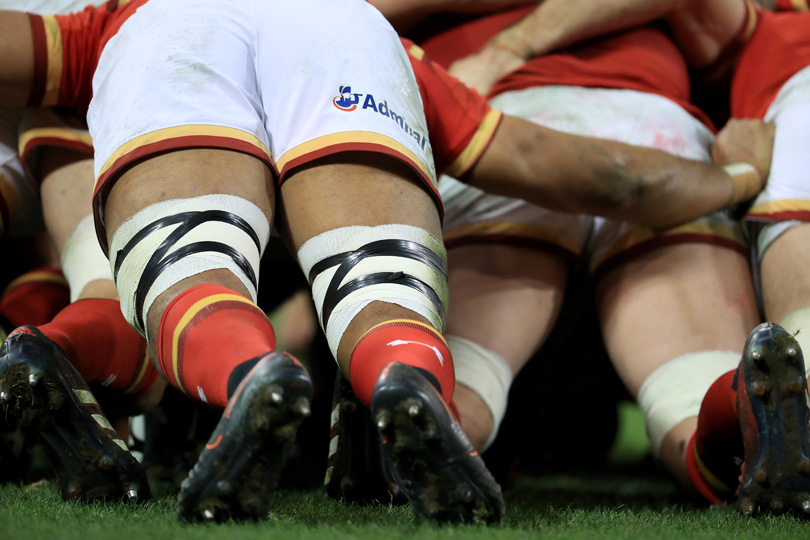
But really they’re inexcusable – considerably more so than feigning injury or going down too quickly to get a free-kick. At least no one gets their facial features permanently disfigured, their brains damaged or their ability to have children permanently harmed by a bit of play-acting.
So you can shove your ‘game for thugs played by gentlemen’ where the sun don’t shine – the same place you put your fingers in the ruck when you think it’ll give you an advantage.
I digress. But if we truly value attacking football and the flair players that deliver it, they deserve more than just being labelled cheats every time they take advantage of half their opponents trying to dismember them.
Sure, it’s textbook moral relativism to claim that diving is justified compared to the greater evils elsewhere. But in an imperfect game, we have to pick our battles. And I’d argue the battle to clean up serious foul play, reduce injury and free up flair players to perform without fear of being maimed, is a way more important one than some spurious campaign to reduce simulation.
